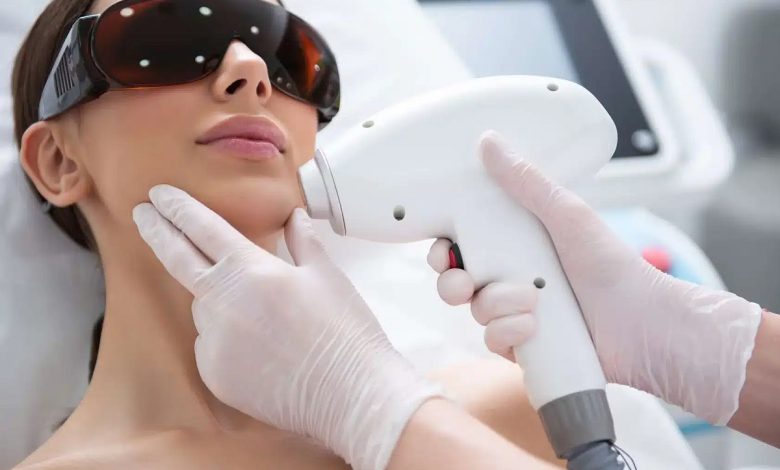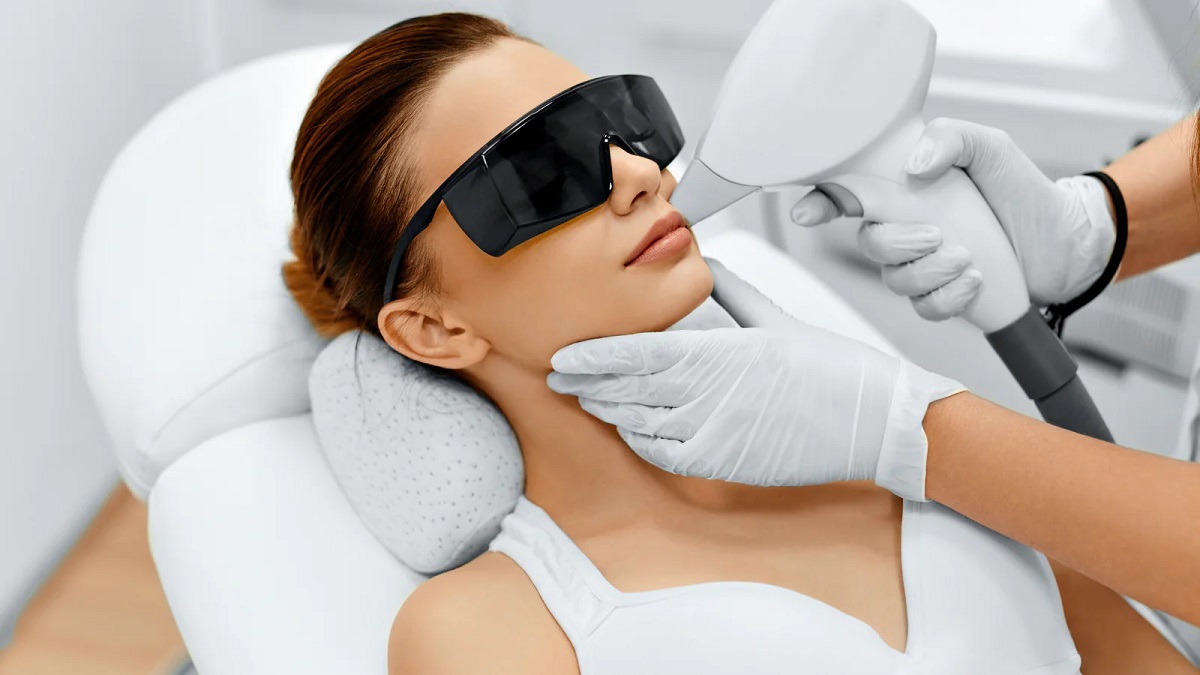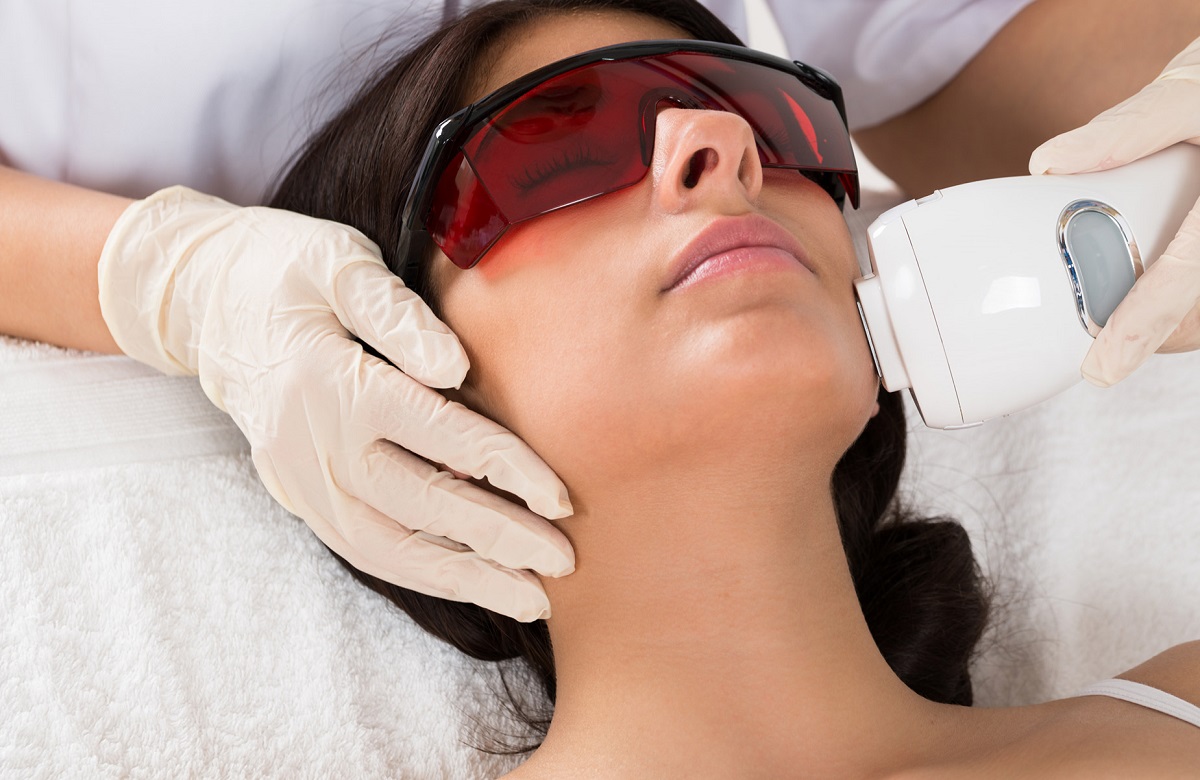When Should Chin Hair Growth In Women Be A Cause For Concern?

Chin Hair Growth: As women approach menopause, estrogen levels decrease, and androgens like testosterone become more dominant, leading to an increase in chin hair.
Everyone has body hair, but sometimes it grows in areas we’d prefer it didn’t. For example, women often have fine, barely noticeable facial hair, but occasionally thicker, coarser hair—especially under the chin—can appear. This could indicate underlying health concerns.
What Causes Chin Hair Growth In Women?

Chin Hair Growth, First, it’s important to understand the two types of hair:
Vellus Hair: These are fine, peach-fuzz-like hairs found all over the body.
Terminal Hair: These are thicker, darker hairs, such as those on the scalp, eyebrows, and lashes. These are the ones we often pluck or remove with tweezers.
Dr. Bruce Dorr, a specialist in gynecology, menopause, and hormone health, explains that androgens are responsible for the thickening of darker hairs. Androgens are sex hormones involved in puberty and growth. While testosterone is typically considered a male hormone, it’s produced in all bodies and plays roles in bone density, muscle development, and puberty.
According to Dr. Dorr, women’s ovaries produce testosterone, which is converted to estrogen and plays a role in regulating the menstrual cycle. Testosterone also stimulates hair growth in areas like the armpits and pubic region.
Chin Hair Growth, Dorr adds that dihydrotestosterone (DHT), a derivative of testosterone, influences hair growth. This androgen stimulates hair follicles in areas like the chin, which are more responsive to androgens. Some women have naturally more sensitive DHT receptors, meaning even normal hormone levels can cause increased facial hair growth. While potentially frustrating, this is often genetic and not a cause for concern.
Potential Health Causes

1. Polycystic Ovary Syndrome (PCOS)
Chin Hair Growth, One potential cause of chin hair growth is PCOS, a condition affecting 8–13% of women of reproductive age. PCOS causes irregular menstrual and ovulation cycles, leading to elevated estrogen levels. This hormonal imbalance increases testosterone and DHT.
Since PCOS can be difficult to diagnose, chin hair growth can be a key symptom. Other signs include acne, hair thinning, weight gain, and insulin resistance.
2. Menopause
Chin Hair Growth, Many women notice increased chin hair with age, often due to perimenopause and menopause. During this time, estrogen levels drop, and androgens like testosterone become more prominent.
3. Weight Fluctuations
Significant weight gain or loss can disrupt hormone levels. For instance, severe weight loss, particularly in eating disorders, can cause an increase in fine body hair, known as lanugo.
4. Cushing’s Syndrome
Chin Hair Growth, Cushing’s syndrome occurs when the body produces excess cortisol (the stress hormone), which increases androgen production and stimulates hair growth.
5. Medications
According to the Cleveland Clinic, certain medications, such as anabolic steroids, testosterone, cyclosporine (Sandimmune), minoxidil (Rogaine), danazol (Danocrine), and phenytoin (Dilantin), can cause excessive facial hair growth.
6. Androgen-Secreting Tumors
Chin Hair Growth, Although rare, androgen-secreting tumors in the adrenal glands or ovaries can increase androgen levels, leading to excessive hair growth. Symptoms may include voice deepening and acne.
What To Do About Chin Hair?
Chin Hair Growth, If you notice chin hair, it’s essential to determine the underlying cause. Dr. Alyssa Dweck, a gynecologist, advises seeking medical attention if the growth is rapid to prevent it from spreading to other parts of the face. She emphasizes that managing underlying conditions like PCOS is crucial for addressing chin hair.
Treatment Options Include:
Hormonal therapy, such as birth control pills or anti-androgens.
Prescription creams, like eflornithine, to reduce hair growth.
Temporary removal methods, such as tweezing, waxing, or threading.
Permanent options like laser hair removal, which requires multiple sessions for lasting results.
No matter the cause, understanding your body and addressing the issue with appropriate treatment can help manage unwanted chin hair effectively.
Also Read:
Laser Hair Removal Safety: Everything You Need To Know About Laser Hair Removal Safety
Neck Skin Sagging: Causes Of Accelerated Sagging In Neck Skin Versus Facial Skin
Biohacker’s Solution For Stopping Hereditary Hair Loss; Important Tips




